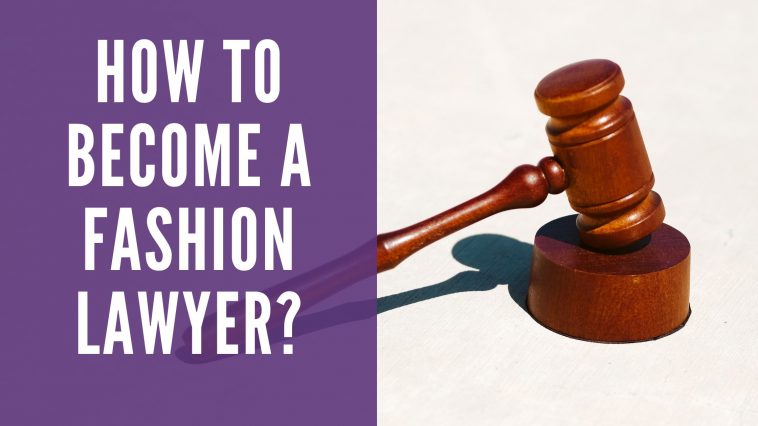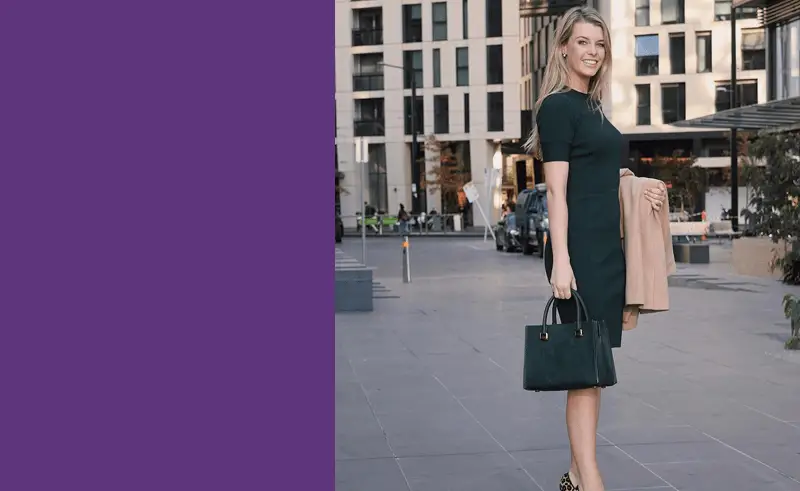Do you have a passion for fashion? Are you interested in learning more about the legal side of the industry? If so, then becoming a fashion lawyer may be the perfect career choice for you! In this blog post, we will discuss the steps that are involved in becoming a fashion lawyer. We will also provide information on what kind of jobs and opportunities are available to those who have obtained a law degree in fashion and the type of salary expectation you can expect to earn. So, if you are looking for a career that allows you to combine your love of fashion with your legal knowledge, then read on!
Page Contents
How to Become a Fashion Lawyer
One thing to point out is that there aren’t many schooling opportunities to become a specialized fashion lawyer. While there’s no specific blueprint to becoming a fashion lawyer, making the right educational choices, networking with key individuals, and gaining relevant experience within the fashion industry should give you a significant advantage.
The field of fashion law is a young legal specialty, which may imply one of two things for attorneys planning to enter the profession;
- As the fashion industry expands, there is a lot of growth potential for fashion lawyers.
- Although the number of lawyer jobs has decreased, the demand for lawyers still outpaces supply.
6 Steps to Becoming a Fashion Lawyer
Step 1: Completing High School
It goes without saying for all lawyers, not just fashion lawyers, that you must complete high school. Getting top marks in high school will help to place you at a top tier college.
Step 2: Completing a Bachelor’s Degree Program
To be eligible for law school, you must have at least a three year Bachelor’s Degree. There is no specific field of study that the American Bar Association recommends, however, if you are wanting to become a fashion lawyer, taking something in that industry could be beneficial. Students can apply to law school from nearly every academic discipline, ranging from political science to mathematics, according to the ABA. English, political science, economics, business, philosophy, and journalism are among the most popular undergraduate majors for prelaw students. However, legal educators claim that prospective J.D. students who take subjects they enjoy have higher GPA scores. Given the importance of your undergraduate academic performance in law school admissions process, concentrating on coursework that you like may help you become a more competitive applicant.
Step 3: Passing the Law School Admissions Test (LSAT)
Not only is an undergraduate degree important, the Law School Admission Test (LSAT) is a core component of the law school admissions process. The admissions offices at the different law colleges utilize LSAT scores as a neutral indicator of a candidate’s knowledge and quality. There are five multiple-choice question sections and an unsolvable written sample in the test. The Law School Admissions Test (LSAT) is a standardized test that assesses candidates’ skills in key areas of future legal work, such as reading comprehension, information management, analysis and critical thinking, reasoning, and argumentation. Since fashion law is a new an emerging discipline, its important to get high LSAT scores as there are a few law schools that provide only fashion law courses and electives, and most fashion attorneys are too busy developing their businesses to teach classes. If you know you want to work in the field of fashion before entering law school, seek out schools that offer fashion law education or support fashion law centers so you can get experience while still in school.
Step 4: Applying to and Completing Law School
Some students choose to pursue a graduate degree right after earning an undergraduate degree, while others choose to delay their enrolment to gain professional experience in other industries before enrolling in law school. Regardless of when one chooses to apply, prospective students should only consider fashion law schools accredited by the American Bar Association. In addition to overall GPA, undergraduate coursework, and LSAT scores, other admission factors may include community service, organizational affiliations, and recommendation letters from educators, alumni or legal professionals. The Law School Admission Council is a great resource for students in the research phase of the law school application process. To obtain your Juris Doctor degree (J.D), it usually takes 3 years to complete the proper postgraduate schooling.
Step 5: Pass the Bar Examination
Before qualifying in a given state, lawyers must graduate from an ABA-approved law school and pass the state bar examination. The bar exam, which tests would-be lawyers’ knowledge of various legal matters, is typically a two-day process. The first day is spent completing the Multistate Bar Examination, while the second day focuses on writing examinations. Guidelines for taking the exam vary by state.In addition to the bar examination, the state board of bar examiners considers a candidate’s educational background, competence, character, and capacity to represent others in legal cases prior to granting full legal certification.
Step 6: Master of Laws Programs to Specialize in Fashion Law
Once you complete the three year law school, pass your bar exam and obtain your JD, which covers general law concepts, you can apply to Master of Laws (LL.M) programs in order to get a more in-depth focus on Fashion Law.
Here are a few schools that currently offer LL.M Fashion Law programs:
Fordham University School of Law
Fordham University School of Law offers 9 LLM degree program, and in particular in Fashion Law. Master of Laws (LL.M) students will study with the most distinguished faculty in the discipline, including both academics and industry insiders. They get to accomplish this while being in a capital of the world’s fashion industry, New York City.
This program is offered in both a full time and part time model. Most full-time students are able to finish the degree within 12 months, however if you choose part time, you must complete all required courses within 24 months. The tuition fee is $68,156 and the intake happens in January and August. The class sizes are around 150 people. The good thing about this program is that if you want to obtain another specialization, you can do so by taking one additional semester.
Cardozo School of Law
Cardozo School of Law, also based in New York City, offers a LLM degree in Fashion Law through their Intellectual Property Law LL.M program. The courses are taken at the famous FAME center for Fashion, Art, Media & Entertainment Law. Through this program, there are 11 core courses to take that are general courses and then there are 7 courses specific to Fashion Law.
The cost to this program is $67,792 and is 12 months in duration. The minimum TOEFL score is 100 and the minimum IELTS score is 7.0. This program can also be taken full time or part time and must be completed within 3 years. They offer intakes in both January and August each year.
At Cardozo, J.D students can obtain both their J.D and LL.M degrees in Intellectual Property (IP) law in as little as seven consecutive full-time academic semesters.
Libera Università Internazionale degli Studi Sociali – LUISS Guido Carli
If you are looking to get our of USA and travel while obtaining your LL.M then LUISS Guido Carli in Rome, Italy, could be the perfect place for you. Rome, is one of the fashion hubs of the world so it only makes sense that they also have a LL.M degree specializing in Fashion Law.
The fee for the course is 8,500€ (7,500€ for early registration), which at the time of writing this would be $8,510 USD, making this program a lot less than both Cardozo and Fordham. The course will only run if they have at least 15 students enrolled and up to a max of 50 students in each intake. The program runs from January to July each year.
Average Salary of a Fashion Lawyer
The average fashion lawyer’s salary is about $82,000. The salary of a fashion lawyer depends on experience and location of the job. The top paying state would be California and in particular in Santa Clara.
| EXPERIENCE | ANNUAL SALARY |
|---|---|
| Beginner (Less than 3 years) | $15,0000 |
| Intermediate (More than 3 years) | $88,000 |
| Professional (More than 6 years ) | $149,000 |
Some might get a pay raise and get higher salaries, you can use the Pay Raise Calculator to know how much of a raise you can get.
Overview
If you are still unsure about how to become a fashion lawyer, you can easily call up one of the Fashion Law schools and talk to them about your interests and they will be able to give you additional information that may help you along your journey in becoming a Fashion Lawyer. To become a fashion lawyer you should expect to do 4 years of high school, 3 years of an undergraduate degree, 3 years to obtain your J.D and another additional year to get your LL.M designation specializing in Fashion Law.




